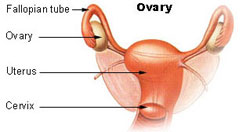 |
Image: Wikipedia |
**__Related stories:__***linkurl:Choosing sex;http://www.the-scientist.com/2009/10/1/36/1/
[October 2009]*linkurl:2009 Lasker Awards announced;http://www.the-scientist.com/blog/display/55978/
[14th September 2009]*linkurl:Genetic basis of XX males discovered;http://www.the-scientist.com/news/display/25087/
[16th October 2006]

















